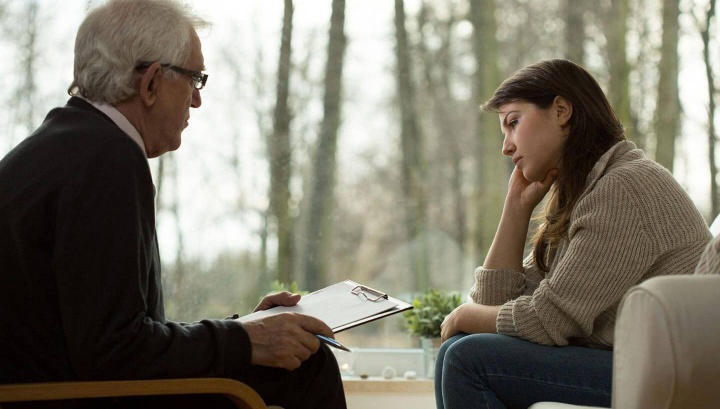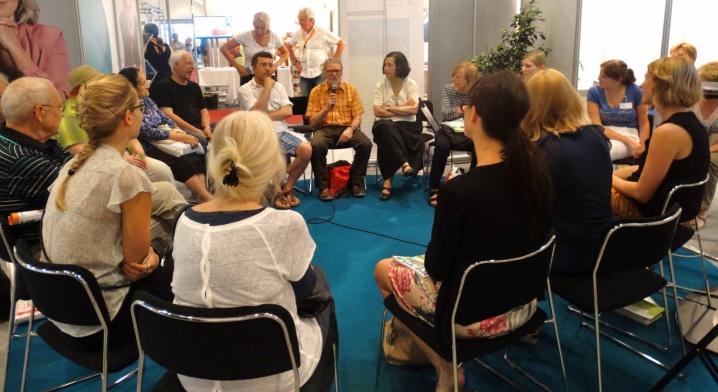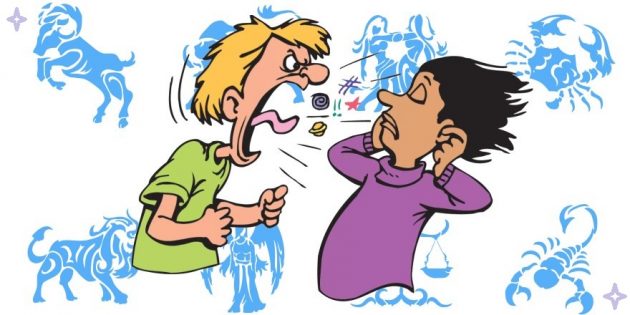Content
- Psychological assistance for depression
- Medication-Free Depression Treatment
- Hypnosis Depression Treatment
A state of depression accompanies a person who has undergone adverse events in life. Violation of mental well-being can cause negative, uncontrolled emotions, lack of will, unwillingness to live. Psychotherapy helps to solve the problem. Often it is more effective than taking medications..
Psychological assistance for depression
A person is not always able to cope with unpleasant circumstances that occur in life. The loss of work, the death of a loved one, the occurrence of conflicts in the team – everything can provoke depression. It is difficult to get out of this state on your own. The help of a therapist will solve the problem. The doctor through the conversation changes the emotional background of the patient. Psychotherapy for depression relieves the symptoms of the disease:
- apathy
- anxiety;
- lack of will;
- dreary mood;
- insomnia
- chronic fatigue.
Depressive conditions are familiar to all ages. The disease occurs in both an adult and a child. Psychotherapy for depression is aimed at a personal approach to each patient. The main task is to improve the quality of human life. To solve it, there are a huge number of methods of psychological assistance. A good and personal approach to the patient, and group classes. The treatment methods are effective, have no side effects, which distinguishes them from drugs.
Reception of a psychotherapist
The most important thing when using methods of psychotherapy for depression is a person’s desire. Then a change in his condition is possible. Individual work of a specialist implies:
- deliverance of the patient from suffering;
- self-help training;
- helping to shape a healthier view of reality;
- preparation for life in stressful conditions.

The advantages of individual psychotherapy for depression is that attention is paid to a specific person. Features of the approach include:
- confidential, intimate atmosphere;
- deep study of the problem;
- safe communication;
- creating an atmosphere of cooperation;
- taking into account personality characteristics;
- the best solution to individual problems;
- overcoming loss, age-related crises;
- the study of specific features of the patient’s life;
- assessment of psychological capabilities.
The disadvantages of the personal method include the difficulty of modeling human behavior in a team when depression is caused by interpersonal relationships. Diagnosis of the disease is based on subjective information that the patient provides to the therapist. It does not always accurately reflect real events and causes. The disease can be masked by psychosomatic manifestations. Individual psychotherapy for depression sometimes has less therapeutic effect, since the effect may depend on the credibility of the therapist.
Group session of psychotherapy
Classes in groups are effective when they solve the problems of interpersonal relationships in the team. The psychotherapist sets the task to be sincere, to talk about his problems, feelings that arise. From the patient, the situation requires greater courage. In this direction:
- mutual learning occurs, there are more role-playing variations;
- relationships in a group are a model of real life;
- it’s easier for a person to overcome his problems;
- there is an exchange of life experience, knowledge;
- it is possible to model a new way of behavior;
- team life skills appear;
- it’s convenient for the doctor to observe patients.
As a way, group psychotherapy for depression can be of great help, defeating the disease. The method is economical, requires less material costs for treatment. However, it is not suitable when an urgent solution to the problems of mental disorder is required – it takes time to assemble a group, build trust, start dynamics. Using a similar method:
- requires discipline from its members;
- involves a lot of attention, time to get the result;
- allows you to more effectively overcome the high resistance of patients to methods.
Medication-Free Depression Treatment
Psychotherapy methods can be used in combination with medical treatment. As an independent process, they also show high efficiency. There are many mechanisms for treating depression. These are methods that influence the causes that underlie emotional breakdowns. They are helping:
- make patients’ lives more positive;
- solve neurotic conflicts;
- teach adaptation to reality;
- reduce the severity of perception of depression;
- accept yourself, do not give up part of your life and do not deny it;
- cope with the symptoms of the disease;
- solve fear problems.
Types of Psychotherapy
Different types of psychotherapy can be used to treat depression. Their basis is an understanding of the cause of the nervous state, and further impact on it. There are varieties of psychotherapy:
- interpersonal – solves problems caused by improper personal relationships with others;
- psychodynamic – seeks understanding of the discrepancy in the conflict in order to eliminate it, create a balance;
- cognitive-behavioral – aims to dissuade a person who considers himself guilty of problems.
Interpersonal
Psychotherapy for depression caused by improper development of relationships with others is called interpersonal. The patient is characterized by a search for those responsible for the situation, disappointment in expectations. The goals of the short-term type of psychotherapy:
- adjustment of interpersonal relationships;
- developing conflict resolution skills;
- relationship building training;
- disagreement improvement.
Cognitive Behavioral Therapy
This type of psychotherapy is based on the idea that depression arises from a person’s false beliefs. The patient is characterized by the presence of increased self-criticism. He considers himself the culprit of all problems. Behavioral therapy is appropriate if necessary:
- analysis of negative thoughts;
- search for wrong reasoning;
- collection of information on the reasons that caused excessive self-criticism;
- creating the right settings;
- destruction of erroneous conclusions;
- convincing the patient of the fallacy of his reasoning.
Psychodynamic
The task that psychodynamic psychotherapy solves during depression is to find conflicts. They often come from childhood and are repeated in adulthood. Features:
- The task is to resolve situations where past experience affects a person’s behavior already outside of parent-child relationships.
- Depression is an unconscious conflict between different desires. Someone may want to support others at the same time and be independent.
- The goal of the psychodynamic type of psychotherapy is to recognize the conflict between conscious and subconscious desires, thoughts.
- Solving such problems takes a long time..
Methods of psychotherapy
There are a huge number of psychotherapy technologies that help deal with depression. Even autogenous training helps. An effective method for independent psychotherapy will help to learn self-hypnosis, muscle relaxation, and the transition to a positive mood. Trainings in a playful way contribute to solving interpersonal problems. These include:
- fairy tale therapy – treatment by creating your own and playing out ready-made fairy tales;
- the impact of music when life events are associated with its sound;
- game therapy in which group members play certain roles.
The methods of getting rid of depression are popular:
- art therapy – the structure of classes includes painting, photographing, handicrafts;
- distraction from the situation with the help of specially selected books;
- zootherapy – treatment with the help of animals;
- neurolinguistic programming – identification of priorities in communication and impact on them;
- gestalt therapy – the inclusion of a person in the process of studying himself here and now instead of worries about “there and then”;
- holotropic breathing – helps to work out psychological trauma in a state of altered consciousness.
Hypnosis Depression Treatment
The use of hypnosis in psychotherapy reveals data on mental trauma. Such events cause depression. The psychotherapist introduces the patient into a trance state with special techniques and helps to find a way out of the situation – this is an authoritarian method of influence. There is a method of hypnotic treatment, when the doctor is a guide, and the patient is actively involved in the process – Erickson hypnosis. A person plunges into the past, focuses on himself, he passes a distant perception of the situation. The patient sees a projection of a successful future..















